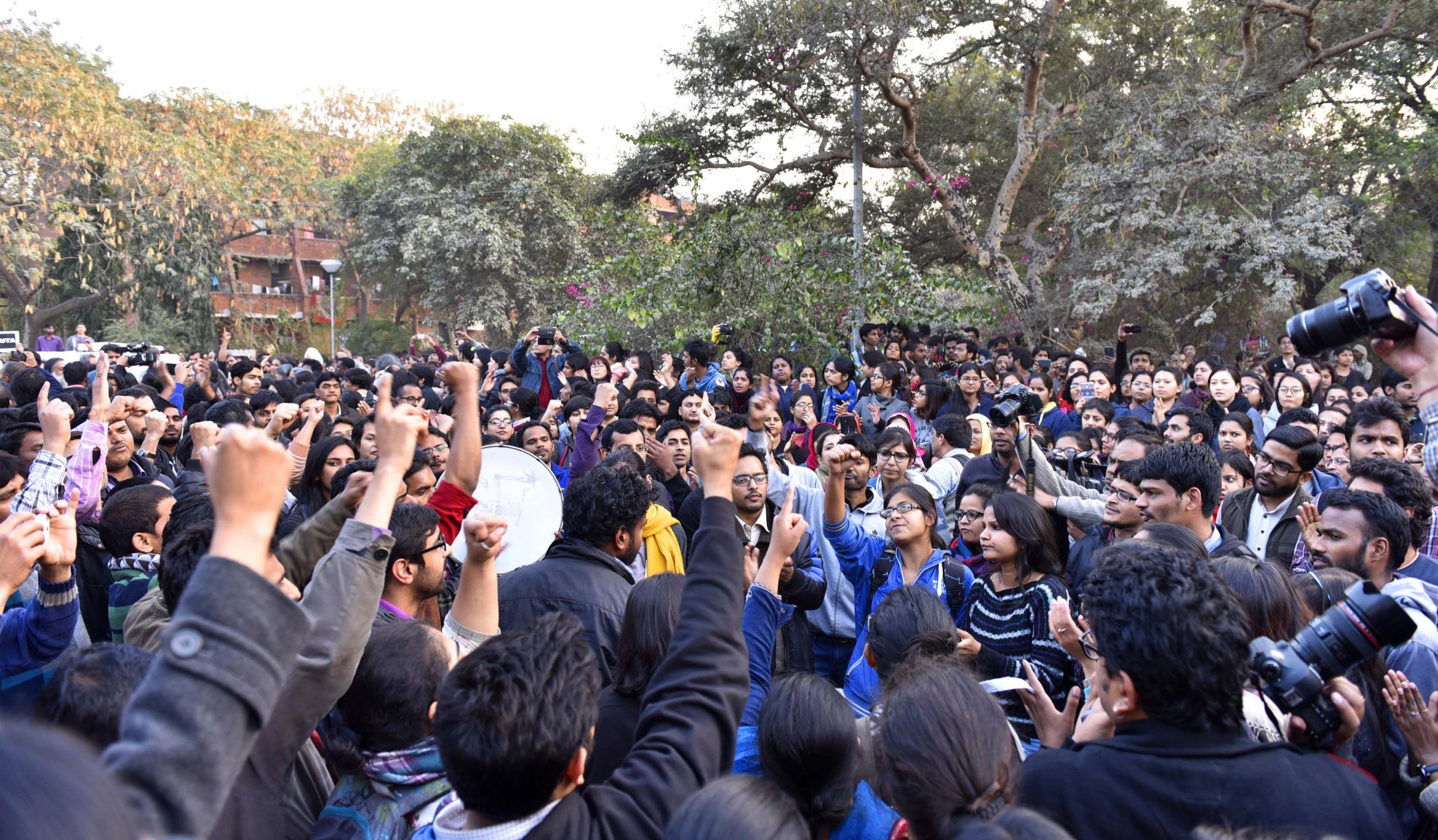
One of India’s top universities erupted in conflict and controversy over the weekend, with thousands staging a mass protest on Sunday after the president of its student union was arrested under a colonial-era sedition law.
Teachers, students and alumni of New Delhi’s prestigious Jawaharlal Nehru University (JNU), along with civil-society activists, formed a human chain stretching about 2 km to protest the “arbitrary charges” under which student president Kanhaiya Kumar was arrested, the Indian Express newspaper reported.
The university’s faculty and student bodies also called for an indefinite strike from Monday until Kumar is released.
The rapidly spiraling saga began last Tuesday, when a group of JNU students held an event to commemorate the second anniversary of the death of Afzal Guru — a terrorist convict hanged in 2013 for his alleged role in an attack on India’s Parliament in 2001. Guru’s execution has long been controversial and divisive, with many claiming he was unjustly implicated for being from the disputed region of Kashmir, which India and its contentious neighbor Pakistan both claim and have fought two wars over since 1947.
The proceedings drew the ire of the ABVP, a right-wing national student association affiliated with the ruling Bharatiya Janata Party of Prime Minister Narendra Modi. ABVP representatives called for the event to be canceled and filed a police complaint after some attendees (whom JNU students allege were from outside the institution) were reported to have shouted slogans denouncing India.
Kumar’s arrest on Friday, which came soon after Indian Home Minister Rajnath Singh condemned “antinational” activities on the JNU campus, has morphed into a heated political confrontation. Opposition parties, dozens of other universities, and many sections of the media have joined JNU’s students and professors in condemning what they allege is a crackdown on dissent and stifling of free speech by the Modi government.
“JNU is inclusive, and anyone who doesn’t like inclusion is branding JNU antinational,” Ajay Patnaik, head of the JNU Teacher’s Association, told the Express.
Kumar, for his part, has proclaimed his innocence.
“I dissociate myself from slogans that were shouted during the event,” he reportedly said in court on Friday. “I have full faith in the constitution of the country and I always say that Kashmir is an integral part of India.”
The events of the past week have reignited growing fears of right-wing extremism under Modi, an issue that gathered momentum last year amid several instances of perceived intolerance.
More Must-Reads from TIME
- Donald Trump Is TIME's 2024 Person of the Year
- Why We Chose Trump as Person of the Year
- Is Intermittent Fasting Good or Bad for You?
- The 100 Must-Read Books of 2024
- The 20 Best Christmas TV Episodes
- Column: If Optimism Feels Ridiculous Now, Try Hope
- The Future of Climate Action Is Trade Policy
- Merle Bombardieri Is Helping People Make the Baby Decision
Write to Rishi Iyengar at rishi.iyengar@timeasia.com